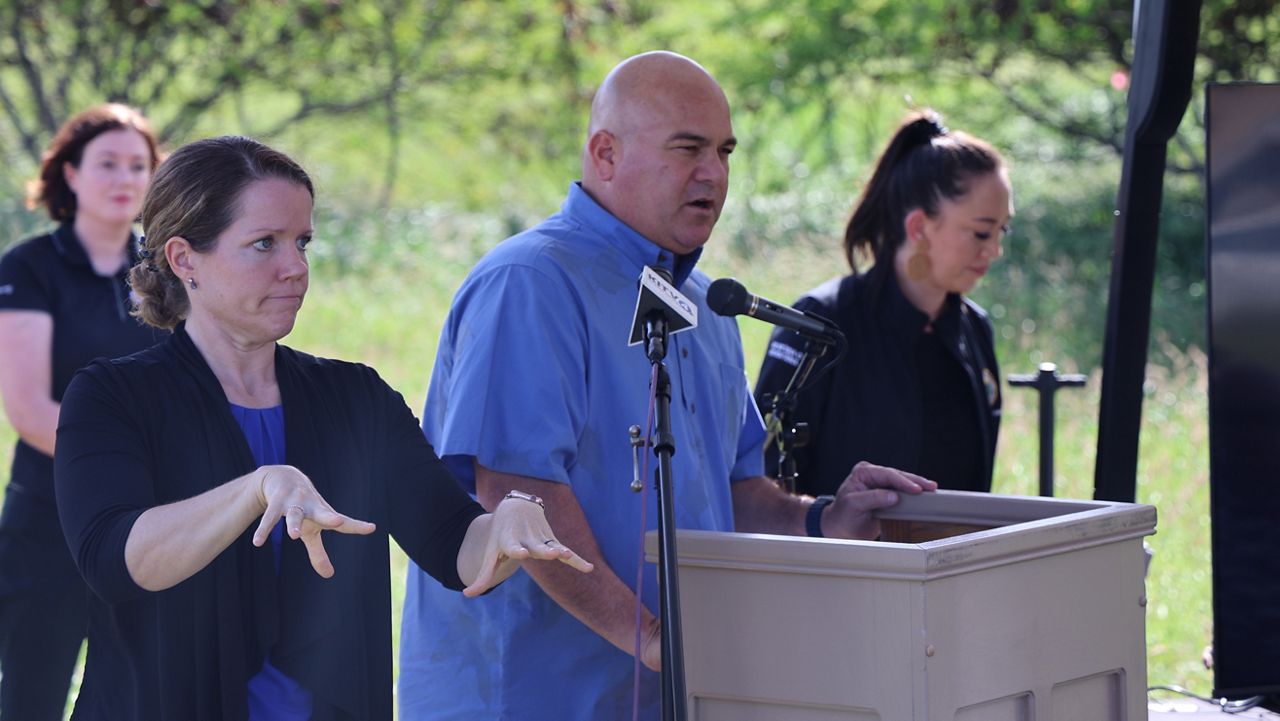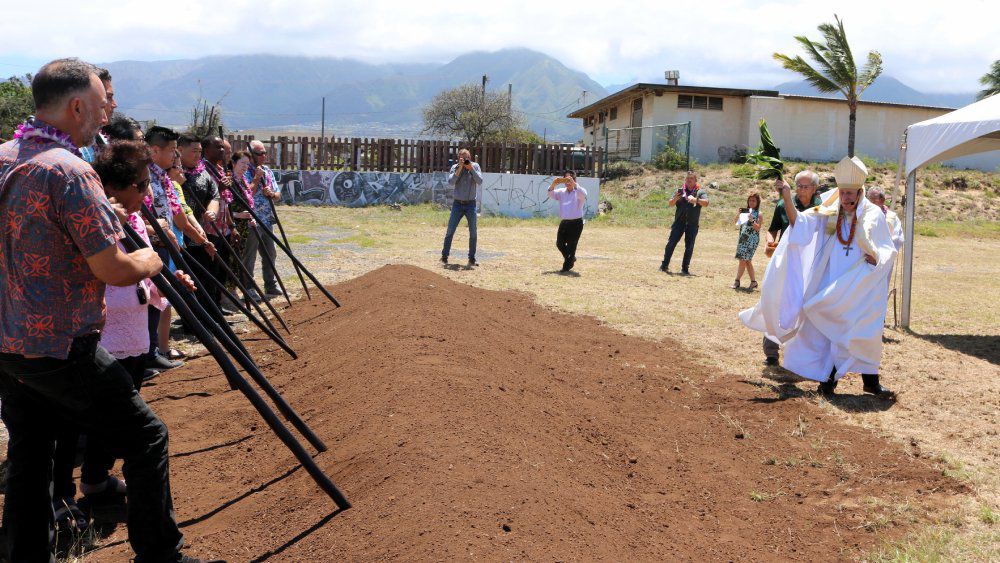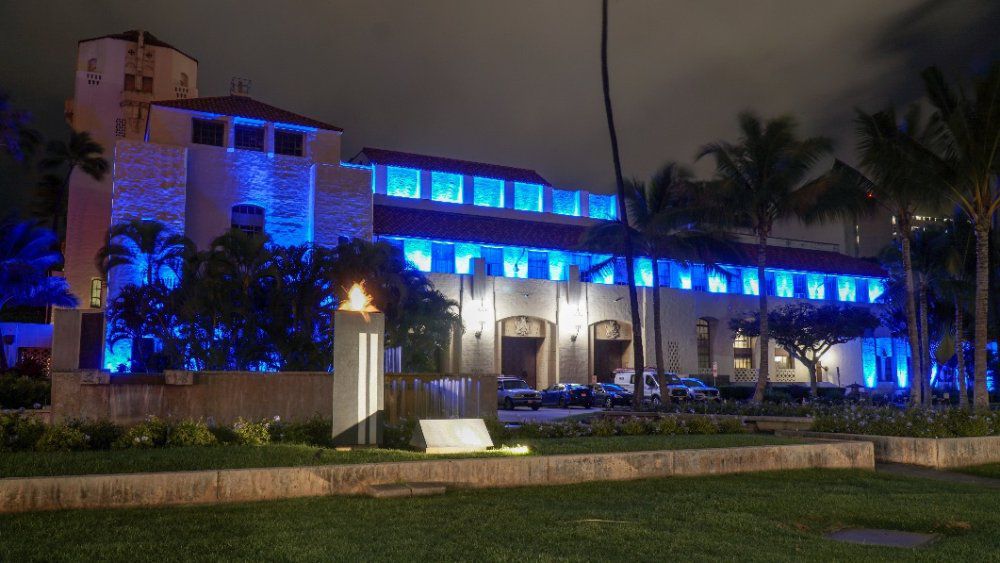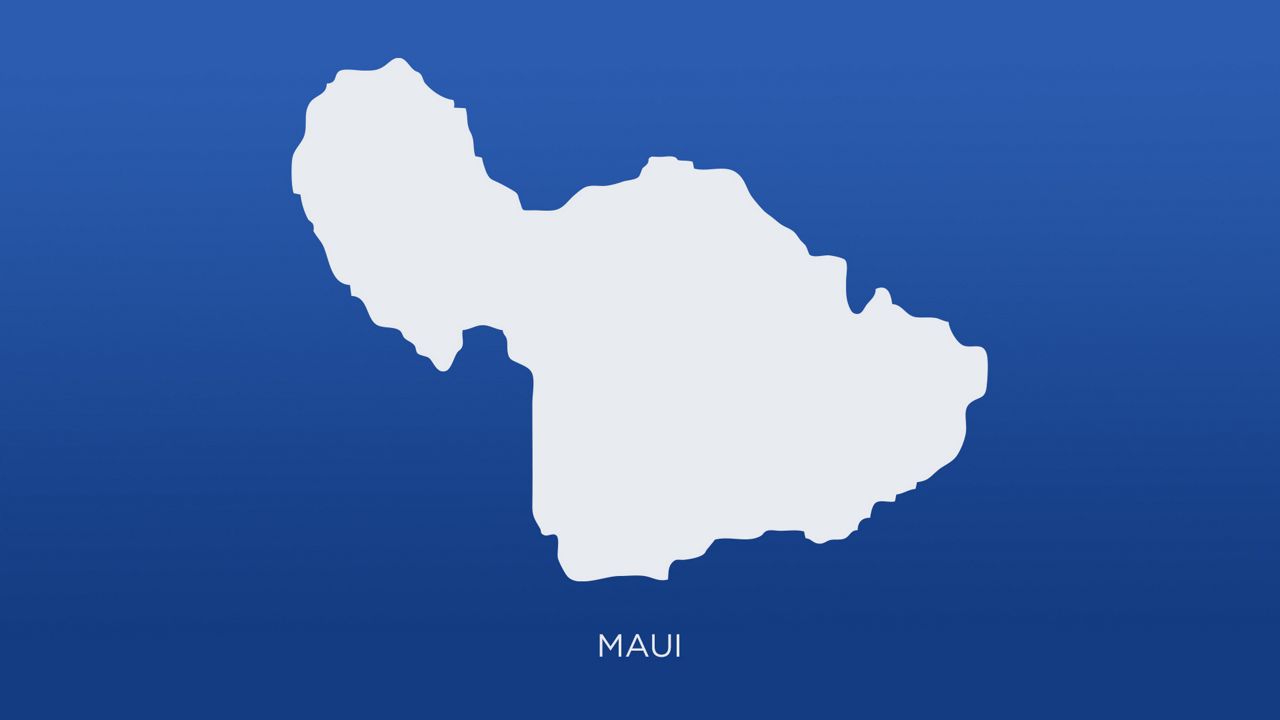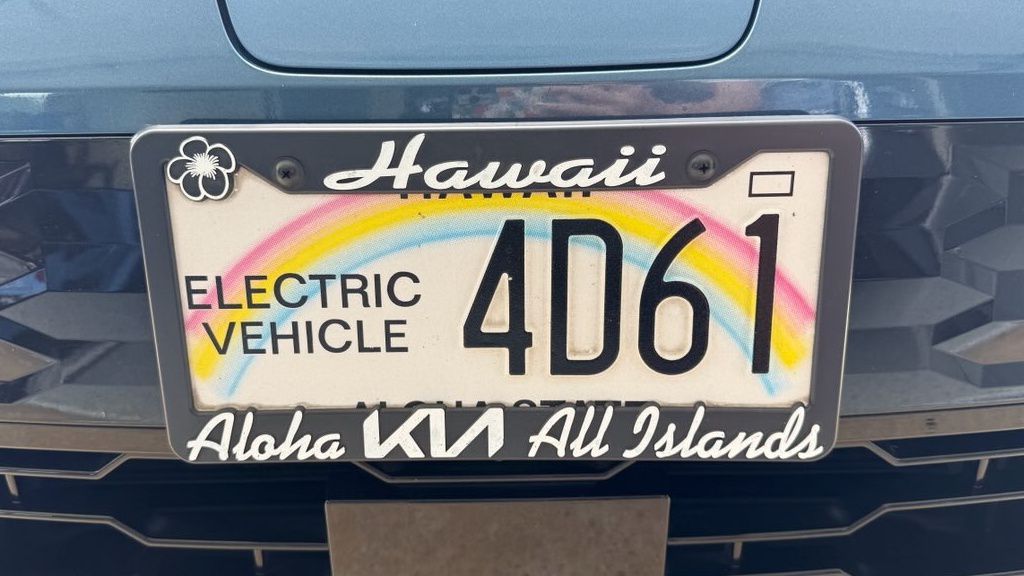Gov. Josh Green and Maui Mayor Richard Bissen joined disaster relief partners and other community leaders in announcing a $500 million agreement to create more than 3,000 stable housing units for those displaced by the Maui wildfires.
The Maui Interim Housing Plan brings is a joint commitment by the state, Maui county, the Hawaii Community Foundation, Council for Native Hawaiian Advancement, the Federal Emergency Management Agency and the American Red Cross to address the immediate housing needs of individuals and families currently in short-term housing at hotels.
“We all know that it is too challenging to continue to live in hotels,” Green said at a news conference held Friday at Maui Lani, one of the designated build sites in Kahului. “We need to get people into stable housing so they can move on with their lives.”
FEMA has committed to providing half of the funding. The state will contribute $150 million, followed by HCF/Maui Strong Fund ($50 million); Maui county ($40 million); CNHA/Kakoo Maui Fund ($5 million) and other philanthropic contributions ($5 million).
Green praised FEMA for providing needed assistance to address immediate housing needs.
“In addition to the $250M FEMA is providing for hoteling and rental assistance to individuals, FEMA is currently leasing approximately 1,500 units to house survivors and is designing multiple group sites to house up to 500 households in Accessory Dwelling Units,” he said. “The estimated costs for these efforts total an additional $450M, which greatly enhances our ability to house all who need it. This partnership is unprecedented and critical to our collective success as a state.”
HCF president and CEO Micah Kane expressed gratitude to more than 250,000 donors from around the world who contributed to the Maui Strong Fund.
“It’s with their support that we can ensure that individuals and families affected by the fires can have hope for their next chapter,” Kane said. “This is just one of the many ways that HCF is convening partners and deploying its resources to support Maui’s people and places.”
The new plan calls for eligible individuals and families to be moved to long-term stable housing by July 1. The state and county have been working with FEMA to extend arrangements for families staying in hotels while the transition occurs.
“We want families to know there is a long-term future for them on Maui—and it starts with providing housing stability right now,” Bissen said.
More than 2,400 households representing nearly 6,000 individuals are still being housed in about 30 hotels across Maui via a non-congregate sheltering program operated by the American Red Cross.
The Maui Interim Housing Plan provides a phased approach to delivering housing that prioritizes permanent housing, efficient use of funds and readiness for move-in by eligible residents. It includes a variety of approaches, including the return of residents to original, undamaged residences; the Host Housing Support Program; direct leasing; short-term rental transitions and new permanent developments.
Administered by CNHA, the Host Housing Support Program started as a pilot project in October. It provides financial assistance to more than 200 households across the state that are housing more than 500 affected individuals and families. CNHA expects 300 more households will sign up for the program in the coming months.
“There is no easy solution to address the housing crisis on Maui. It’s a kakoo effort that will take government, private sector, philanthropy and the community working in partnership to overcome this crisis situation,” said CNHA president and CEO Kuhio Lewis. “The road ahead will be long and challenging, but not impossible when we do it together.”
The memorandum of understanding, developed under the Maui County Office of Recovery Office, led by acting managing director Josiah Nishita, follows the FEMA National Disaster Recovery Framework. Members of the MOU have been meeting regularly to develop initiatives to help more than 12,000 individuals affected by the Maui fires.
“The collaborative work occurring between state, county, the philanthropic and nonprofit communities on behalf of Maui, is unprecedented in ensuring everyone, including the most vulnerable, have the resources they need to recover,” said FEMA Region 9 administrator Robert Fenton, Jr. “The action of this partnership, so early in the recovery process, demonstrates the commitment at the local level to support the Maui community.”
In addition to individuals housed in Maui hotels, more than 1,000 households, including undocumented individuals, Compacts of Free Association migrants and previously homeless individual are estimated to be residing on the neighbor islands. The collaborative initiative aims to extend its reach to these populations.





